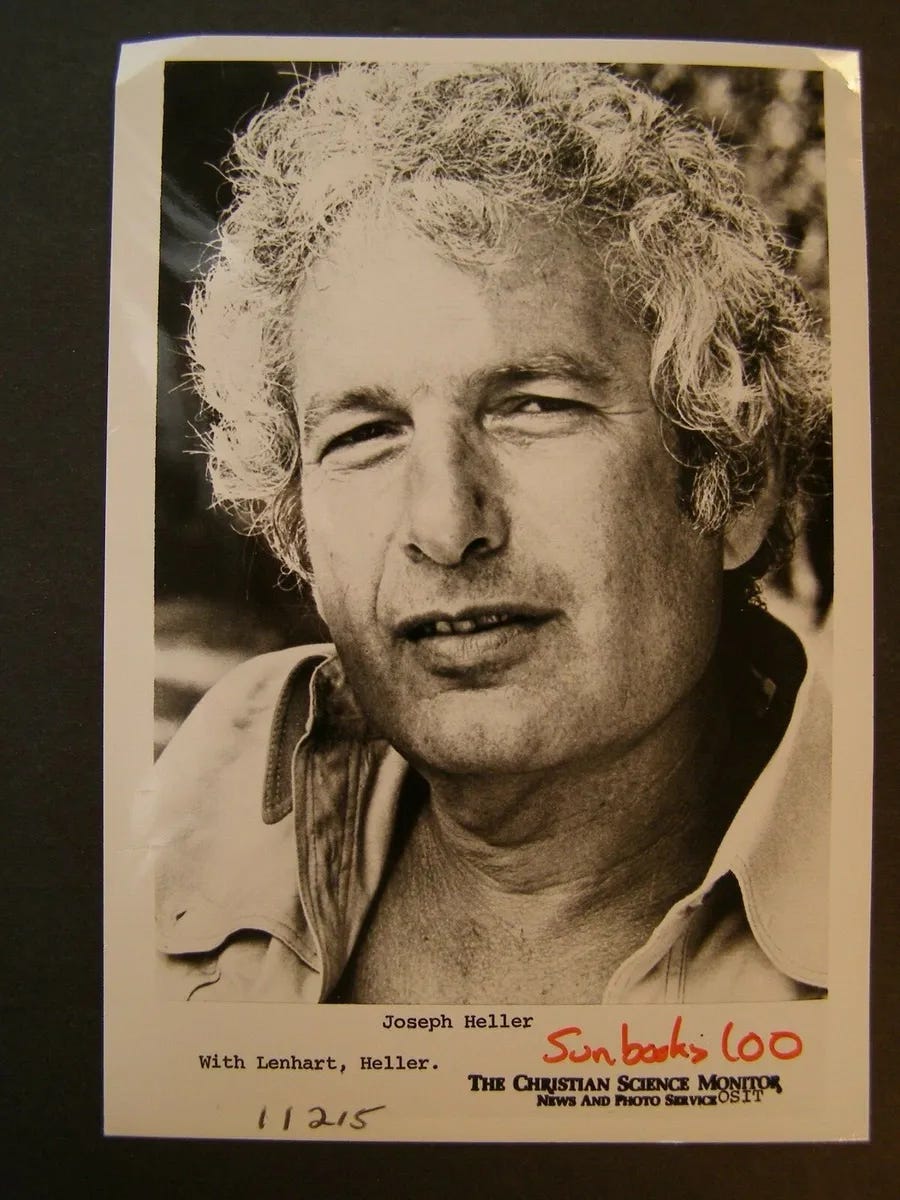Yesterday, I received the following email:
Hi, Michael:
In my dotage I have come to realize I'd like to focus on writing satire, which feels like a good way to channel one's below-the-surface anger or other emotions into humor. (Yes, I'm a master of the obvious.)
Anyway, I am NOT asking you to write me an essay or thesis about satire, but are there two or three authors whom you would recommend I read as a way into that world? Just off the top of your head, please go to no trouble. (I have read some Mark Twain, never read Vonnegut, have sampled most of the New Yorker writers.)”
Happy to help. Just off the top of my head:
I am a great believer in reading whatever it is you wish to write, so if there is anybody currently doing satire in a way that delights you, read them. Everything you can get your mitts on. Then, when you’re still in that trance, write something that sounds like them to you—maybe even parody them, if you’re feeling frisky—and see what comes out. You’ll be surprised at how much you come through, and via this little trick, you’ll have a framework to finish the piece. Do this five times and you’ve got a style.
I think you could do far worse than starting out with the satirists in the canon: Vonnegut, as you mentioned; Joseph Heller (Catch-22 is marvelous, and doubtless got Heller mountains of tail); John Kennedy Toole. If that leads you into adjoining territory like Portnoy’s Complaint, or Lucky Jim, or Miss Lonelyhearts, or Good Soldier: Schweik, or The Ginger Man, so much the better. Part of the fun of finding your satirical style will be reading exuberant stylists like Terry Southern, and loving or hating them. (My old writing partner loves Donald Barthelme, who makes my skin crawl.)
The ghost of Sean Kelly reminds me to add Cervantes to your reading list; Don Quixote does hold up. And of course, Swift—”A Modest Proposal” demonstrates a gambit still used regularly, though it’s a bit dangerous in our less literate, more flat-footed era.
As to the short stuff, you would probably enjoy Katharine and E.B. White’s A Subtreasury of American Humor, but most of that would probably have to be put through a mental de-fusting. Fierce Pajamas is a wonderful collection; and I also recommend collections compiled by Russell Baker and Gene Shalit (!).
Note what I have not suggested: I would try not to submerge yourself into modern short satire—McSweeney’s, The Onion—until you’ve gotten a really good grounding in the old stuff. Because of the mechanisms of digital sharing, these modern forms are very formulaic, e.g., “The Long Title Which Encapsulates The Premise So That Readers Will Click On It.” Or, alternatively, “The Punchy Demo-Focused Headline Joke.”
If you wish to be read widely, I’m sorry to say that these rather anonymous-feeling forms are probably your best bet. But they are not great for education. They are so simple, so purely exercises in joke-making—working out a voice, or ringing the changes on a premise—these modern forms tend to be pretty thin soil for someone looking to sprout themselves into a real, honest-to-Voltaire satirist.
Hope this helps!
Every so often, MICHAEL GERBER, Editor & Publisher of The American Bystander leaps onto the internet to lead yet more people over the cliff of prose satire. He can be blamed at publisher@americanbystander.org.





I hihgly reccomend Twain's "Innocents Abroad." It was his best selling book in his lifetime. So funny, he satirizes American tourists and of course himself. I'm jealous that you have a first time read ahead of you!
I'm chiming in to say don't forget to study the songwriters who excelled at this art. Alice's Restaurant, of course. And a lot else from the folk revivial of the 60s. Country music is also a fab source of satire -- songs like Okee from Muskogee, which was written as satire, though it wasn't taken as such by many. (There's a fantastic episode of Cocaine & Rhinestones that deconstructs the satire in the song here: https://open.spotify.com/episode/6q1b891GiuyqWINQqMiKvA?si=76251c9777364a3c)